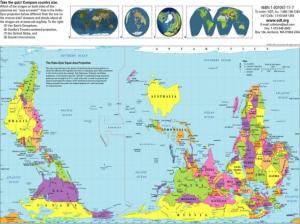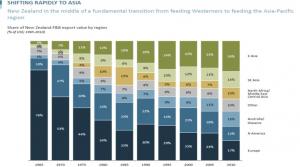Large countries are prone to focus inward while smaller nations do not have that luxury. These smaller countries need to make international trade a top priority. In the agricultural sector, New Zealand is a leading example, as a small but agile competitor committed to maximizing its competitive advantages and a trade generator that is among the leaders in pressing for trade liberalization around the Pacific Rim and globally.
Simon Tucker, New Zealand’s ambassador to Canada, characterized his country’s historic role as “Great Britain’s offshore farm,” to describe to the attendees of the 53rd Annual Board of Delegates Meeting, New Zealand’s dramatic shift to a global trading perspective.
Ambassador Tucker’s point was New Zealand must export to prosper, and the emerging economies of South and East Asia are its natural growth markets. Liberalized trade, especially around the Pacific Rim, is a strategic priority.
In 1965, Europe accounted for over three quarters of New Zealand’s food exports, with North America taking another 10 percent. By 2010, Europe’s share had shrunk to under 20 percent, with the North American share essentially stable. The dramatic diversification of New Zealand’s export profile would be the envy of many trading nations.
New Zealand’s commitment to free trade and its leadership in the Trans Pacific Partnership (TPP) negotiations, reflect a national recognition that international trade is the foundation of national prosperity, a strategic perspective on the world. While there are bilateral issues between the U.S. and New Zealand that remain to be negotiated, New Zealand is a strong ally in the pro-free trade block that is working to make the TPP a landmark in economic cooperation and shared growth for all.


